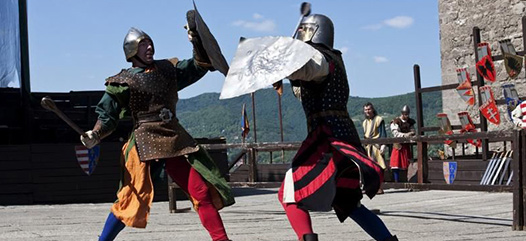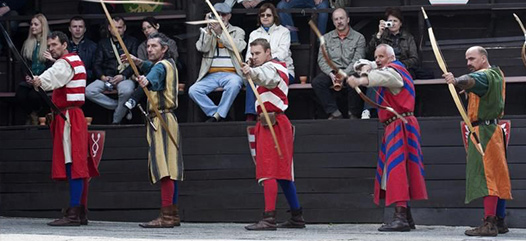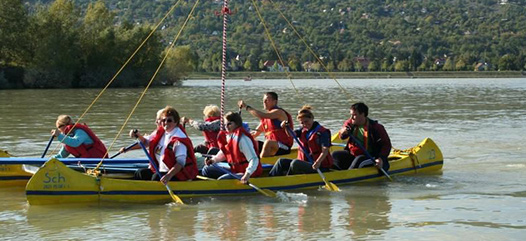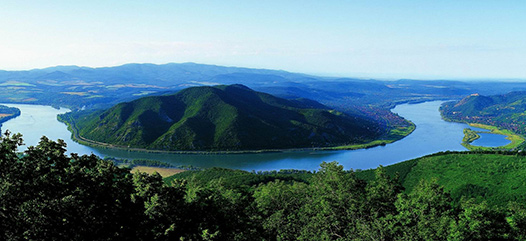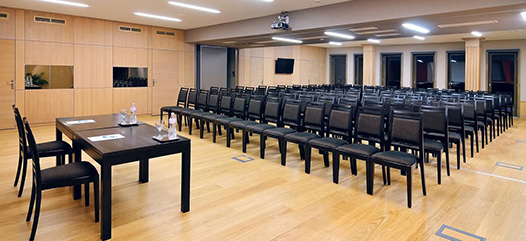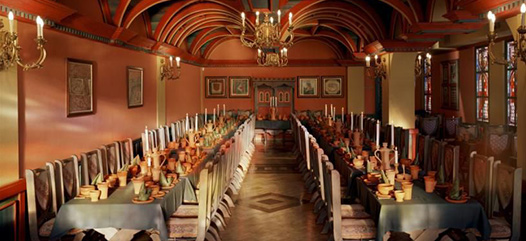Preliminary scientific program
21 July 2014 |
||
| 14:00 | Registration starts | |
| 16:00 | Opening ceremony Opening keynote lecture: Douglas Lauffenburger, MIT, USA |
|
| 17:30 | Welcome reception and dinner | |
| 20:30 | Informal evening program (bowling, table soccer, swimming, etc) |
|
22 July 2014Structural biology and high-throughput experimental techniques |
||
| 9:00 | Keynote lecture:
Giulio Superti-Furga, CeMM, Austria |
|
| 9:45 | Expert talk:
Rune Linding, Technical University of Denmark, Denmark |
|
| 10:15 | Expert talk:
Anne-Claude Gavin, EMBL, Germany |
|
| 10:45 | Tea/coffee break | |
| 11:15 | Expert talk:
Gabor Balogh, BRC, Hungary |
|
| 11:45 | Contributed talks: | |
|
Laszlo Buday, MTA-TTK, Hungary |
||
|
Ivana Vonkova, EMBL, Germany |
||
|
Christin Zasada and Raphaela Fritsche, Max-Delbrueck-Center Berlin, Germany |
||
| 12:30 | Lunch | |
| Teamwork – part 1 | ||
| 14:00 | Getting know each other | |
| 14:30 | Presenting the problem to be solved | |
| 16:45 | Tea/coffee break | |
| 17:15 | Medieval team building competition, informal discussions in the meantime | |
| 19:00 | Dinner | |
| 21:30 | Poster session 1 | |
| 22:30 | Informal evening program | |
23 July 2014Network modelling |
||
| 9:00 | Keynote lecture:
Boris Kholodenko, University College Dublin, Ireland |
|
| 9:45 | Expert talk:
Laurence Calzone, INSERM at Institut Curie, France |
|
| 10:15 | Expert talk:
Julio Saez-Rodriguez, EMBL-EBI, United Kingdom |
|
| 10:45 | Tea/coffee break | |
| 11:15 | Contributed talks: | |
|
Attila Csikasz-Nagy, Kings College London, United Kingdom |
||
|
Abulikemu Abudukelimu, VU University Amsterdam, The Netherlands |
||
|
Aaron Meyer, MIT, USA |
||
|
Orsolya Kapuy, Semmelweis University, Hungary |
||
|
Alexey Kolodkin, Luxembourg Centre for Systems Biomedicine, Luxemburg |
||
| 12:30 | Lunch | |
| Teamwork – part 2 | ||
| 14:00 | Discussing the problem to be solved | |
| 15:30 | Catamaran boat trip in the Danube Bend (each team in each catamaran) | |
| 17:00 | Tea/coffee break | |
| 17:30 | Summary activity on the problem, creating a presentation | |
| 19:00 | Dinner | |
| 21:30 | Poster session 2 | |
| 22:30 | Informal evening program | |
24 July 2014Signaling systems & network medicine |
||
| 9:00 | Keynote lecture:
Hans Westerhoff, BioCentrum Amsterdam, The Netherlands |
|
| 9:45 | Expert talk:
Peter Csermely, Semmelweis University, Hungary |
|
| 10:15 | Expert talk:
Paul Bates, Cancer Research, United Kingdom |
|
| 10:45 | Tea/coffee break | |
| 11:15 | Contributed talks: | |
|
Sakshi Gulati, Cancer Research, UK – LRI, United Kingdom |
||
|
Ferenc Gallyas, University of Pecs, Hungary |
||
|
Alba Gutiérrez, Universitat Pompeu Fabra, Hospital del Mar Medical Research Institute, Spain |
||
|
Nadezhda Doncheva, Max Planck Institute for Informatics, Germany |
||
|
András Zeke, MTA-TTK, Hungary |
||
| 12:30 | Lunch | |
| 14:00 | Contributed talks Further signaling network topics |
|
|
Katalin Toth, University of Missouri, USA |
||
|
Bhaswar Ghosh, ZMBH, University of Heidelberg, Germany |
||
|
Nilgun Yilmaz, VU University Amsterdam, The Netherlands |
||
| 14:45 |
Maria Victoria Schneider, TGAC, United Kingdom |
|
| 15:30 | Presentation of teams (10 minutes/team) |
|
| 16:45 | Tea/coffee break | |
| 17:15 | Discussing group presentations, novel ideas, and concrete actions (e.g. collaborations) | |
| 18:00 | Closing Keynote:
Toby Gibson, EMBL, Germany |
|
| 19:00 | Renaissance Farewell Feast, Award presention for teams and poster presenters Closing remarks |
|
| 22:00 | Informal evening program with music | |
25 July 2014Departure’s day |
||
